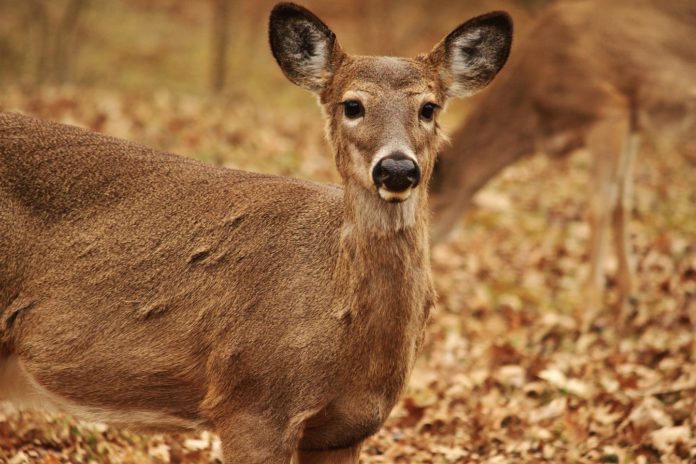As wildlife agencies and conservation organizations continue to grapple with the spread of chronic wasting disease, Congress has made $10 million available for state agencies to fund CWD management through the passage of the government omnibus bill. The legislation, which is intended to fund the government through the fiscal year, increases federal funding for CWD management by $3 million from the previous year, and doubles the amount allocated in 2020. President Biden signed the omnibus into law today.
CWD was first discovered in 1967 at a research facility in Colorado, and it has now been detected in free-ranging cervids across 28 states and four Canadian provinces. In recent months, several states, including Idaho and Louisiana, have recorded their first cases of the always-fatal disease. Alabama confirmed its first case in January and its second case just last week. Several states, including Texas and Wisconsin, have recently dealt with the costs of large outbreaks at farmed deer populations.
“The unchecked spread of chronic wasting disease across the United States poses an existential threat to deer hunting, which generates $40 billion in annual spending,” said Whit Fosburgh, president and CEO of the Theodore Roosevelt Conservation Partnership. “And as the status quo on the landscape continues to worsen, the inevitable costs of managing CWD continue to balloon.”
These costs are especially concerning to state wildlife agencies, which rely on federal funding to support their detection and research programs.
“Hunter harvest almost never lines up with our surveillance needs, plus the cost of testing for CWD in a single deer exceeds the cost of a deer tag in our state, so we must rely on external funding,” Kentucky Department of Fish & Wildlife biologist Noelle Thompson said in a recent interview with MeatEater.
This external funding allows states to develop new ways to detect and monitor the spread of the disease. For example, in Tennessee, which has been dealing with the disease since 2018, researchers are exploring the possibility of using dogs as biosensors to detect CWD in live deer. Other states lean on landowner and hunter participation programs to manage the disease, relying on early detection to identify hotspots in wild populations.
Read More: If Chronic Wasting Disease Is Fatal, Why Aren’t We Finding CWD-Killed Deer in the Woods?
Wildlife officials argue that these recent increases in funding have not been enough to slow the spread of the prion disease, and they are calling for more sweeping action to fund CWD management and detection across the country. In December, the House passed the CWD Research and Management Act by a vote of 393-33. If it passes the Senate and is signed into law, it would allocate $70 million annually to research and management of the disease. That would be a monumental step toward combatting and understanding the disease’s rapid spread across the country.
“This increase in federal funding is a positive step forward, but more work remains to be done,” Fosburgh said of the omnibus bill, “including securing investments in research that will make disease management more effective in the long-term.”


